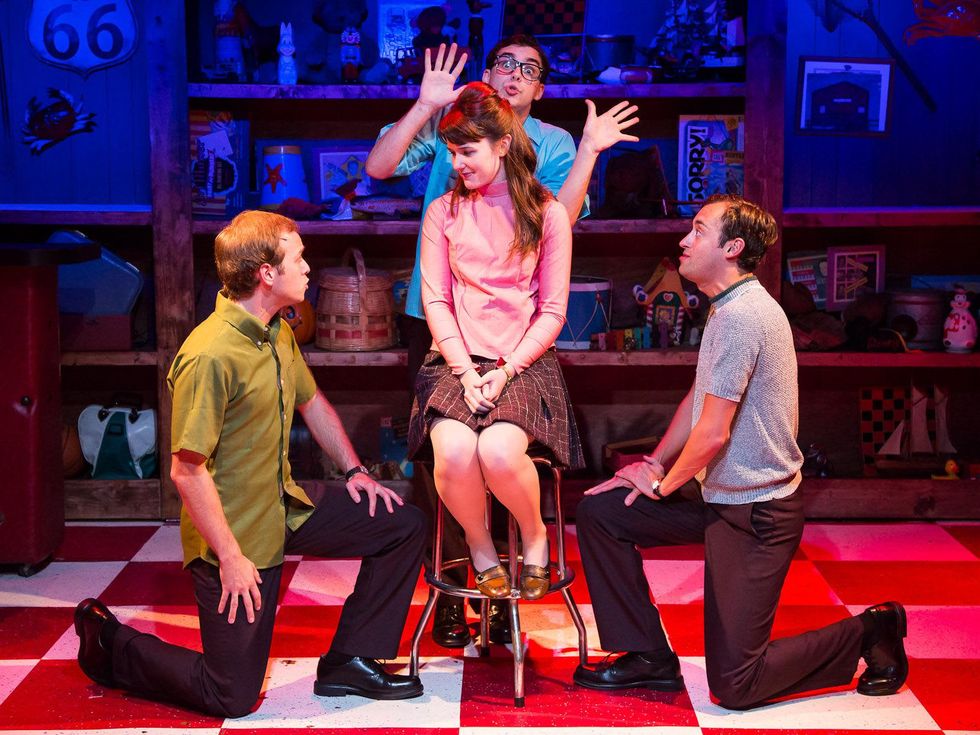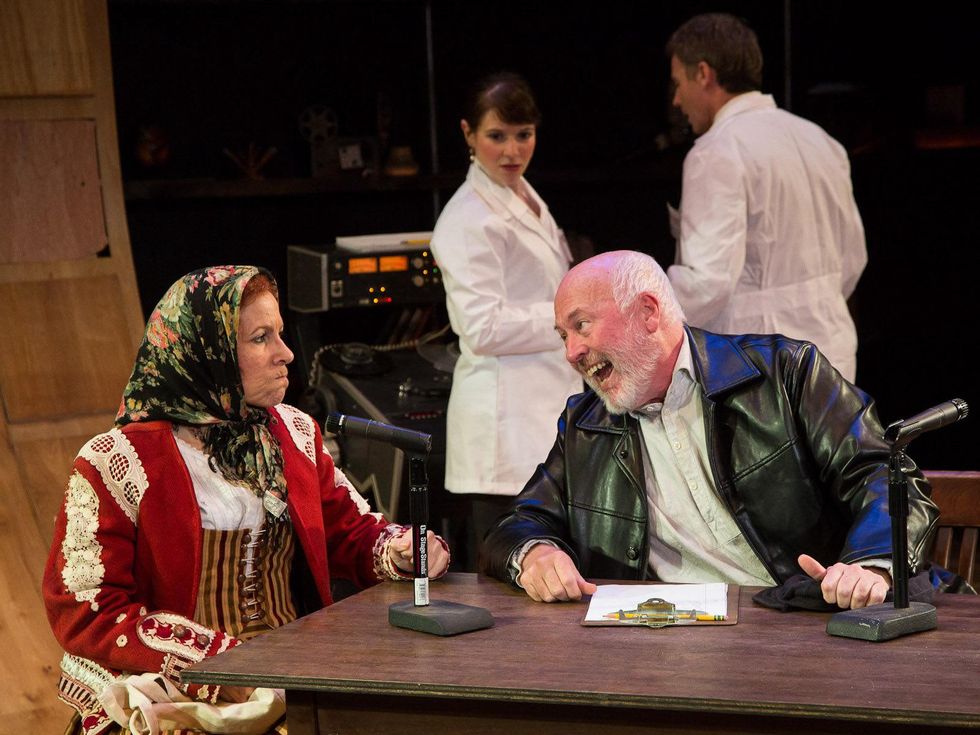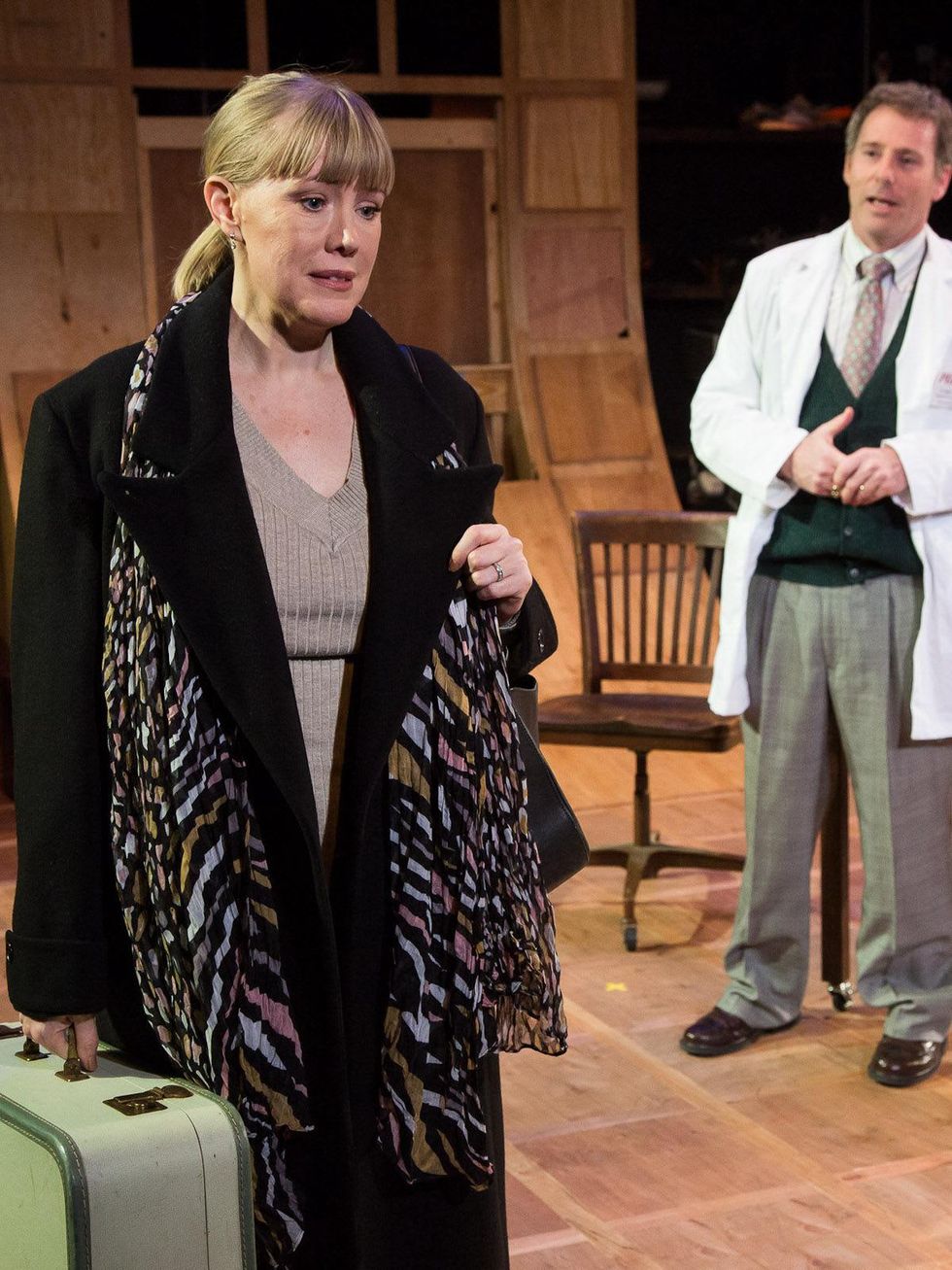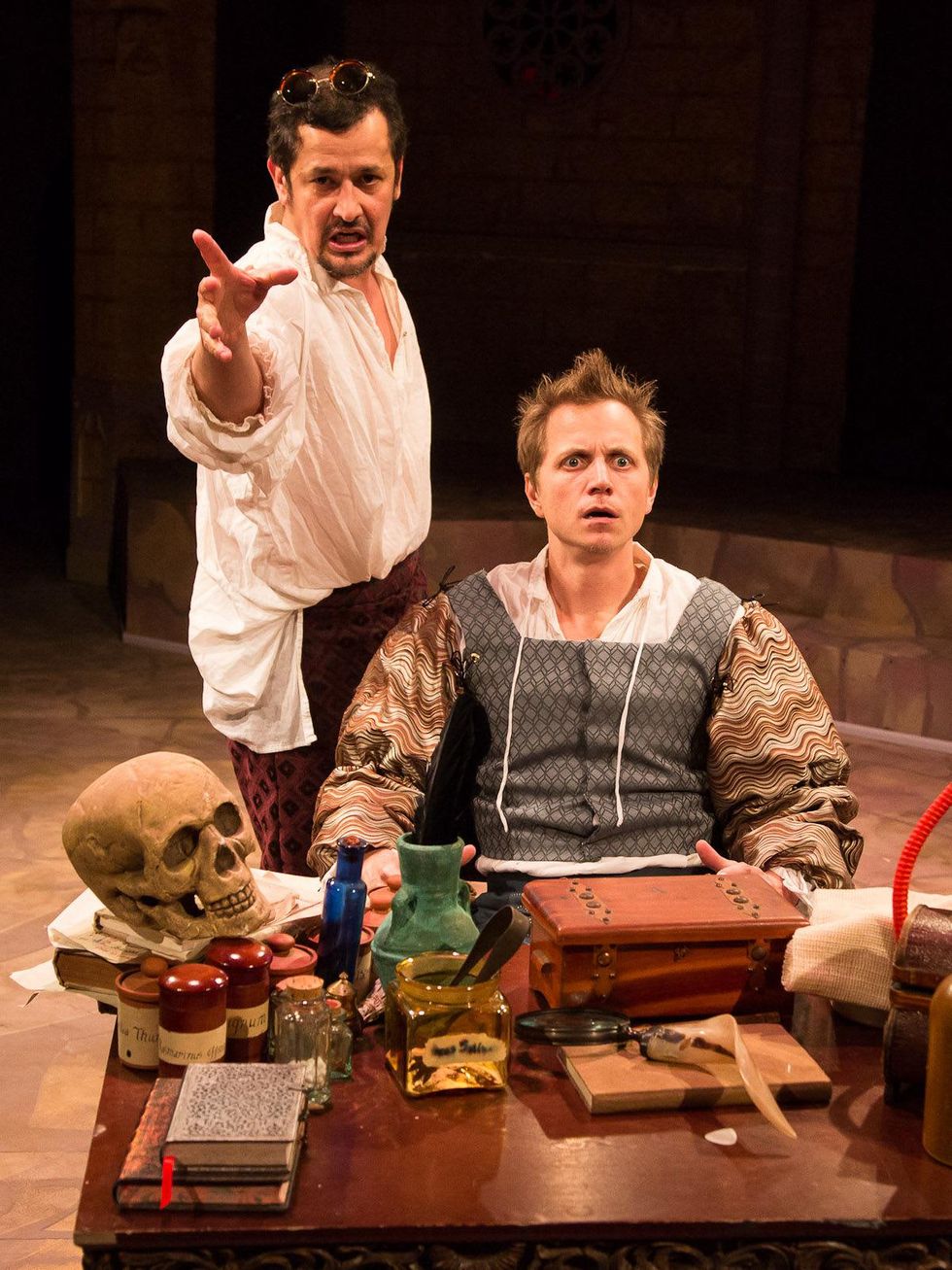The Arthropologist
Stages Repertory Theatre takes you inside the director's lab, a creative breeding ground
When the curtain went up on Julia Cho's The Language Archive at Stages Repertory Theatre, running through March 3, it was not only the first time this Susan Smith Blackburn Prize-winning play has been seen in Houston, but also the first time renown Stages actor Sally Edmundson finds herself in the directing role.
In the adjoining theater is David Davalos' Wittenberg, through Feb. 17, directed by Stages associate artistic director Josh Morrison — another first.
Earlier this season, Stages artistic associate Mitchell Greco got a chance to strut his directing chops with Roger Bean's Life Could Be A Dream, while the spring season rolls out Rebecca Gilman's Dollhouse, a modernization of the Henrik Ibsen classic, from April 3 through April 28, with director of education and communications Eva LaPorte in the director role.
Welcome to the director's lab, a place where Stages plans to grow its next crop of in-house directors. When Stages' chief Kenn McLaughlin told me about the project, I pictured a dark room where the wild-eyed artistic director and his cohorts performed experiments on plays. (The guy does give off a zany mad scientist vibe.)
Welcome to the director's lab, a place where Stages plans to grow its next crop of in-house directors.
But after visiting with McLaughlin and his team, and seeing three out of the four plays, it seems obvious that this thought-through project provides a model for mining in-house talent and creating a safe and stimulating place for peer to peer discourse.
McLaughlin credits the idea for the lab to Edmundson, which he came up with after she expressed an interest in directing. Coincidentally, Morrison and Greco also approached him with the same request. He added LaPorte to the group and the lab was born. The directors have been meeting since the beginning of 2012.
"The idea struck me, why not just do something crazy, why not just make them direct. The best way to learn is to do it," explains McLaughlin. "It's one of the most exciting risks we have has taken in years. The rehearsal hall should be a place of experiment; a place of wild, fresh ideas where artists are free to be bold and risky."
McLaughlin ended up shaping the season with the strengths of the team in mind. With scripts in hands, indispensable texts including David Ball's Backwards & Forwards: A Technical Manual for Reading Plays and Michael Bloom's Thinking Like a Director, a great deal of determination and a fearless willingness to face the unknown, the team set out to think through the directing process together.
The Language Archive
Edmundson was drawn to Cho's poignant play about a linguist, George, who re-discovers a language thought to be lost. "I agree with George when he says that 'when a language dies, we are talking about a whole world, a whole way of life. It is the death of imagination, of memory.'"
After a 35-year career on stage, Edmundson was ready to dive in.
"I brazenly announced that I was scared shitless by directing. Then, I realized that I've been 'directing' most of my life."
"I've been toying with the idea of trying my hand at directing for some time now," she says. "I'm finally taking the plunge. As much as I've always loved acting, I'd found in the last several years that I needed a new challenge. I brazenly announced that I was scared shitless by directing. Then, I realized that I've been 'directing' most of my life."
Edmundson has found the experience illuminating on several levels. "Acting is like decorating one room. Directing is getting to build the whole house. I get to choose the moldings, the fixtures, the tiles, the paint colors, everything. This uses up all of me—I feel fully engaged."
She found the process influencing her work as an actor as well. "I'm fascinated how what I was learning about directing was informing my acting in a new and focused way," she says. "Whether I end up continuing to direct or not, I know my acting has been significantly deepened."
Wittenberg
Wittenberg sets Dr. Faustus and Martin Luther sparring for the loyalty of Hamlet, their star student. Morrison cast his boss, McLaughlin, as Martin Luther, which proved a terrific way to evaluate the lab from the inside.
"I made the full commitment to being an actor in the process because I also wanted to learn about Stages from this unique perspective," says McLaughlin. "So my hat as mentor to the director's lab was put on the shelf, and I got to respond to Josh purely as an actor seeking guidance. I saw first hand that the stuff we did in the year-long study part of the process really took hold."
Morrison went into the project knowing full well that the learning curve was going to be a big one.
Morrison went into the project knowing full well that the learning curve was going to be a big one.
"Being a first time director means that mistakes are going to be made. Having people in the room you trust and respect has given me the chance to learn and understand from those mistakes and get feedback from the actors and designers about what I'm doing well and what I can do better," says Morrison. "The terrifying part is that I never want to feel like I'm not putting the actor's and designers in the best position to succeed."
"My respect for the craft of directing, and the challenges that directors face has grown exponentially, and I believe this will carry over into my approach to acting, as well," says Morrison, who had previously worked in just about every capacity at Stages besides director.
"It's given me a much greater understanding of the importance of communication between actor and director."
Dollhouse
LaPorte came into the lab with some directing experience, but Dollhouse is her first Stages show.
"It has been interesting to explore a common language with each other," says LaPorte. "That's what Kenn had in mind: Exploring a common language for the aesthetic that is uniquely Stages. As a company of in-house designers and artistic support staff, we approach work in a way uniquely ours, and I would describe it as hungry, stimulating and personal. The whole team really tackles a piece of theater and attempts to get to its core together."
At the moment, LaPorte is deep into production issues from costumes to the scenic design. Thanks to the camaraderie of the lab, she has a roomful of colleagues ready to discuss her ideas.
Life is a Dream
Greco was first out of the lab gate with Life Could Be a Dream, which ran from July 11 through Oct. 14, 2012. As the youngest director in the group, he found the peer support a key component of his lab experience.
Like any new adventure, it's equal parts elation and fear.
"It would not have been half as successful if it wasn't an open, collaborative process," says Greco. "I steered the ship, but I certainly didn't have all the ideas that went into the final product."
His time in the lab informed the big picture. "Directing has changed my outlook on the whole rehearsal process. Now when I'm in a show, I try to contribute in a way that I would appreciate as a director. The impulse to direct has actually been a long, gestating thing."
Like any new adventure, it's equal parts elation and fear.
"I can't explain how exposed I felt, watching the baby I had worked on with everyone for four weeks be set free, to sink or swim," quips Greco. "I don't think I ever sat back or stopped gripping my armrest."
Cameron Bautsch as Skip, from left, Dylan Godwin as Wally, Adam Gibbs as Denny, Mark Ivy as Eugene and Rebekah Stevens as Lois in Life Could Be a Dream





